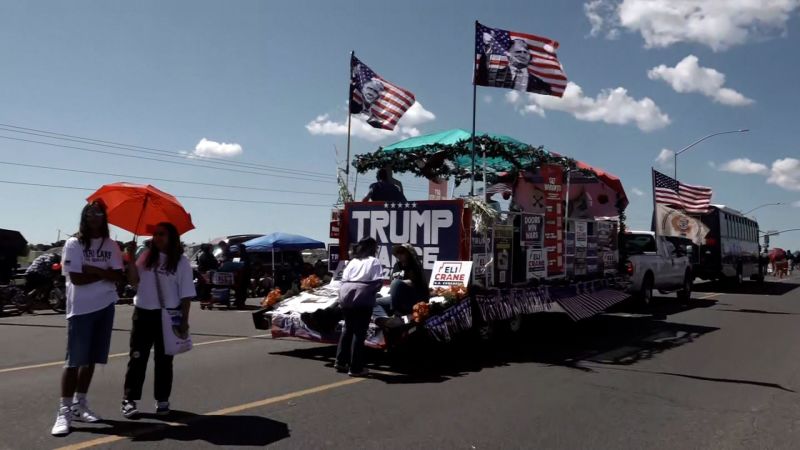The Arizona Republican Party faces backlash during the annual Navajo Nation parade, with some parade watchers booing and shouting at their float adorned with Trump-Vance campaign signs. The state is a key battleground this year, with the Navajo Nation making up the largest tribe in Arizona, highlighting the electoral importance of tribe members in races for the White House and US Senate. The Arizona GOP recently opened a field office in Window Rock, the capital of the Navajo Nation, as part of efforts to reach out to Indigenous voters.
Meanwhile, the Harris campaign in Arizona is also focusing on engaging with Navajo voters, opening a field office in northeast Apache Junction and planning on media campaigns in both English and Navajo languages. Both Senate candidates, Democratic Rep. Ruben Gallego and GOP nominee Kari Lake, are actively engaging with Indigenous voters, aware of the importance of securing their votes in one of the most crucial Senate races in the country. The candidates are seeking to replace retiring independent Sen. Kyrsten Sinema, with Democrats prioritizing defending their Senate majority.
Gallego, with ties to the Navajo Nation through his military veteran friends, is working to get Native American populations out to vote. He has been visiting all of Arizona’s federally recognized tribes, advocating for improved access to healthcare and voting for Native Americans. The Navajo tribe members face challenges with access to basic necessities like water, groceries, electricity, internet, and healthcare, which has been exacerbated by barriers to voting for Native Americans, as highlighted by a 2024 report from Democrats on the House Administration Committee.
Democratic voter Loretta Charley from a rural Navajo community emphasizes the importance of voting but expresses disappointment in the lack of infrastructure improvement in her community. Navajo activist Allie Young has been organizing efforts to mobilize Native American voters, including leading horseback rides to reach rural voters and register them for the upcoming elections. The US Supreme Court’s recent ruling allowing Arizona to enforce voter registration laws that may impact Native Americans has further raised concerns about voter access in the Navajo Nation.
Despite political affiliations, voters from the Navajo Nation feel that more outreach is needed from both parties, as they face challenges related to voting, infrastructure, and representation. The historic potential of Harris’ candidacy as the first woman vice president resonates with some Navajo voters, while others like Tom Ranger, a Republican, feel that sentiment among tribe voters is changing due to economic concerns under the Biden-Harris administration. Both parties are working to engage with Indigenous voters and address their concerns leading up to the elections.


